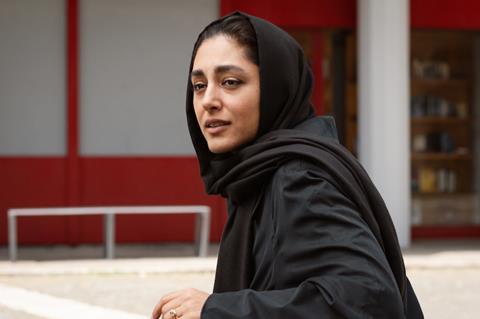
“It doesn’t matter that I’m Israeli. Whatever context you put it in, this was not initially an easy story to bring to the screen,” says director Eran Riklis of Reading Lolita In Tehran, an adaptation of Azar Nafisi’s memoir that is making its world premiere at this week’s Rome Film Festival.
Reading Lolita In Tehran relates university professor Nafisi’s experiences of returning to her home country of Iran during the 1978 revolution, and living under the theocratic Islamic Republic government until her departure in 1997. During this time she formed a book club for female students, reading banned works including Lolita.
Tel Aviv-based Riklis contacted US-based Nafisi via Facebook in 2017 and within a week was at a cocktail party at her house in Washington DC, being introduced to Iranian dissidents as “her Israeli director”.
He teamed with Los Angeles-based writer Marjorie David for the adaptation and started to look for Iranian actresses. “I didn’t want to make the mistake a lot of films do, where they take somebody Moroccan to play Iranian,” says Riklis. “I’m very proud – everybody on screen is Iranian or was raised in an Iranian family.”
Riklis had directed Golshifteh Farahani in 2017 feature Shelter but as she had been banned from returning to her homeland since 2009 – since living in France – the actress had an ongoing avoidance of any Iran-related projects.
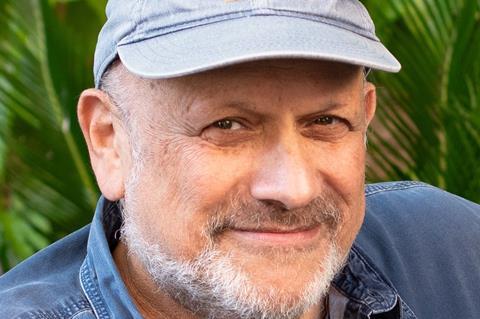
“When Eran came to me, I took it as ‘he will never be able to fund this movie, he’s never going to do this’,” she recalls. When Riklis progressed the project, Farahani’s response flipped to “Shit! How am I going to do this?!”
Reading tears
A script reading between the two in Cape Town unlocked the collaboration. “Something hit me like a truck,” says Farahani. “I exploded in tears – something opened my heart, and I realised ‘we have to do this’.”
Riklis knew then the film was going to happen. “If Golshifteh was moved, it was a small test for me to see that this was working,” he says.
But further obstacles included a language barrier, with Farahani having not spoken Farsi on film for over a decade. “I was truly anxious, and then thank god to this movie I realised what I missed out on for so many years,” says the actress.
Farahani was already well-acquainted with Nafisi – “the Iranian intellectual community is like a family. Even if we’re not close, we all know each other.”
With France-based Holy Spider star Zar Amir Ebrahimi joining the cast, Riklis held workshops in which the actresses would read the script to get to know each other, as they read to each other in Nafisi’s memoir. It led to script modifications, with the women conversing in Farsi and then providing suggestions to Riklis. “It was like a beautiful dance – we somehow created this gibberish language,” says Farahani.
Riklis has told stories of life in the Middle East before, such as Lemon Tree, The Syrian Bride and Zaytoun, and has worked with European partners including from Germany and France. Reading… marks his first Italian collaboration after producers Gianluca Curti and Santo Versace of Minerva Pictures and Marica Stocchi of Rosamont approached him. “They had a strong passion for the film, and an ability to touch on the best financial sources in Italy,” says Riklis.
The €4.6m film shot in Italy in March 2023. UK-based WestEnd Films launched sales in May, with Reading… a rare example of a film sold internationally on the renown of two Iranian actresses.
During filming, Riklis added a scene in which Farahani puts on a headscarf covering her hair in front of a mirror, then symbolically removes it. The team were acutely aware of the political context of their film, with protests taking place in Iran and across the world following the death in police custody of 22-year-old Iranian woman Mahsa Amini, reportedly after a beating for not wearing her headscarf.
“Iran started [the headscarf enforcement] in 2018, at which time we were thinking, ‘come on, a headscarf is a headscarf’,” says Farahani.
By the time the film was in production six months after Amini’s death, “the weight of that scarf became tonnes. It was carrying a lot of charge and the fact we were all in exile because of it. We went through all that shit because of that piece of cloth. While we were shooting we were charged as hell.”
Ongoing conflict
Further regional context arrived after the October 7 Hamas attacks on Israel, and the subsequent Israeli invasion of Gaza. Riklis emphasises this is “specifically a film about Iran at a certain time in history” but acknowledges a connection between the events in Reading… and those ongoing in the region now. “It’s about how things change in a country due to political and social movements, good ideas, bad ideas. The potential for violence and destruction, dehumanising people – it has to stop.”
Like several previous Riklis films, production was led by Moshe Edery of Israeli company United King Films and the late Michael Sharfshtein, and was backed by the country’s state-supported Rabinovich Foundation.
“From the Israeli point of view – a good story is a good story,” says Riklis of the Israeli funding support for an Iranian story. “We come from a place where if you think you have something to tell, you’re going to find the finance for it.”
Riklis now has three projects in the works, including a miniseries about the abduction of Jewish Orthodox boy Yossele Schumacher in the 1960s. He is also developing two features: Stolen Heart, set in post-Holocaust Poland; and Last Chord In Naples, about a New York jazz group that travels to Italy to resolve family issues.
Farahani, who is now filming Julia Ducournau’s Alpha in France with Tahar Rahim, sees Reading… as a stand against political violence.
“Governments and politicians, they tear apart,” she says. “Our work as artists is to stitch back together what they are tearing apart. We keep doing that without fear; we are beyond the separation and duality they are creating.
“We hold hands no matter what. Even if this world is collapsing in bombs and fires, we keep working together, being together, loving each other no matter what.”




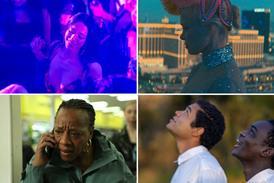
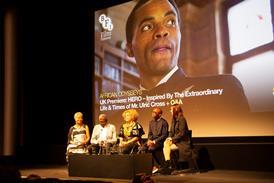






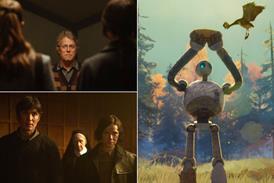



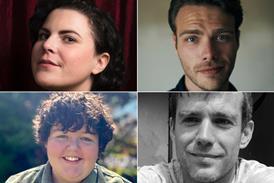







No comments yet